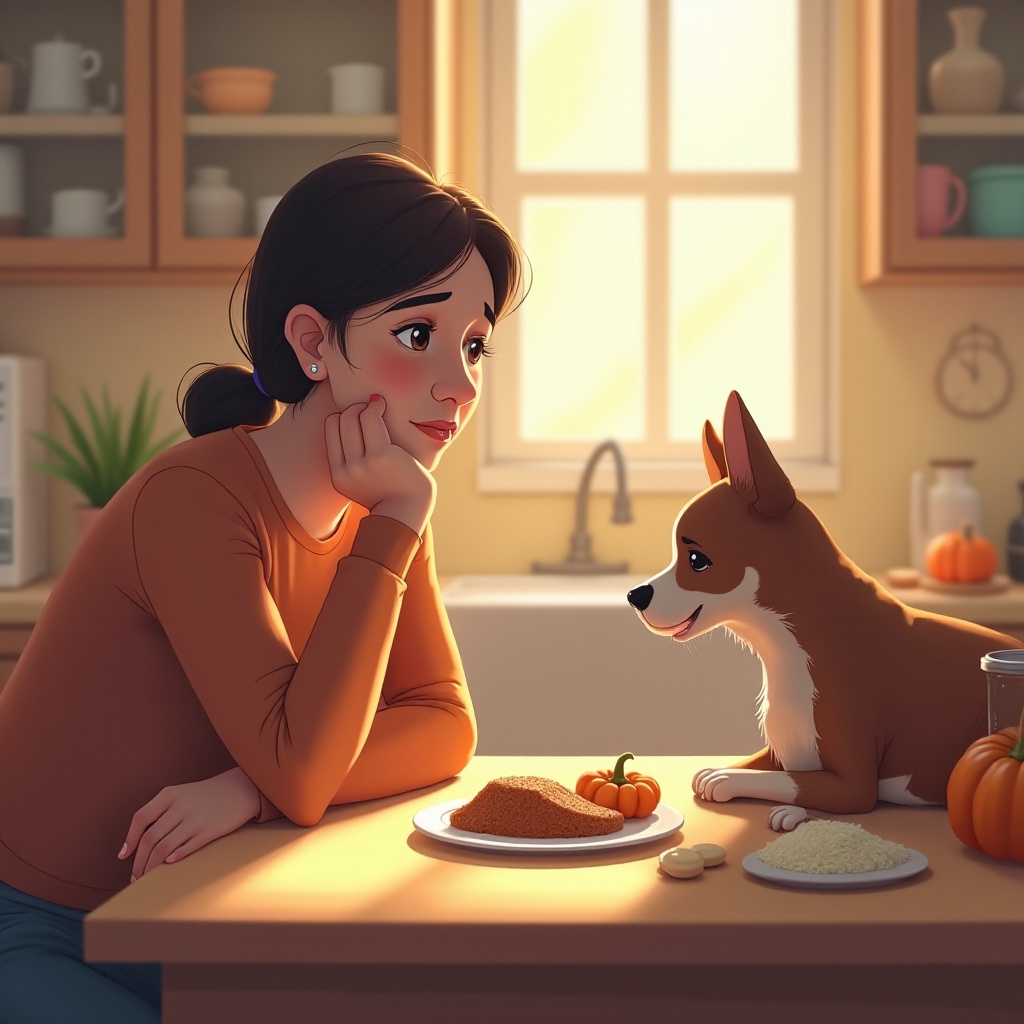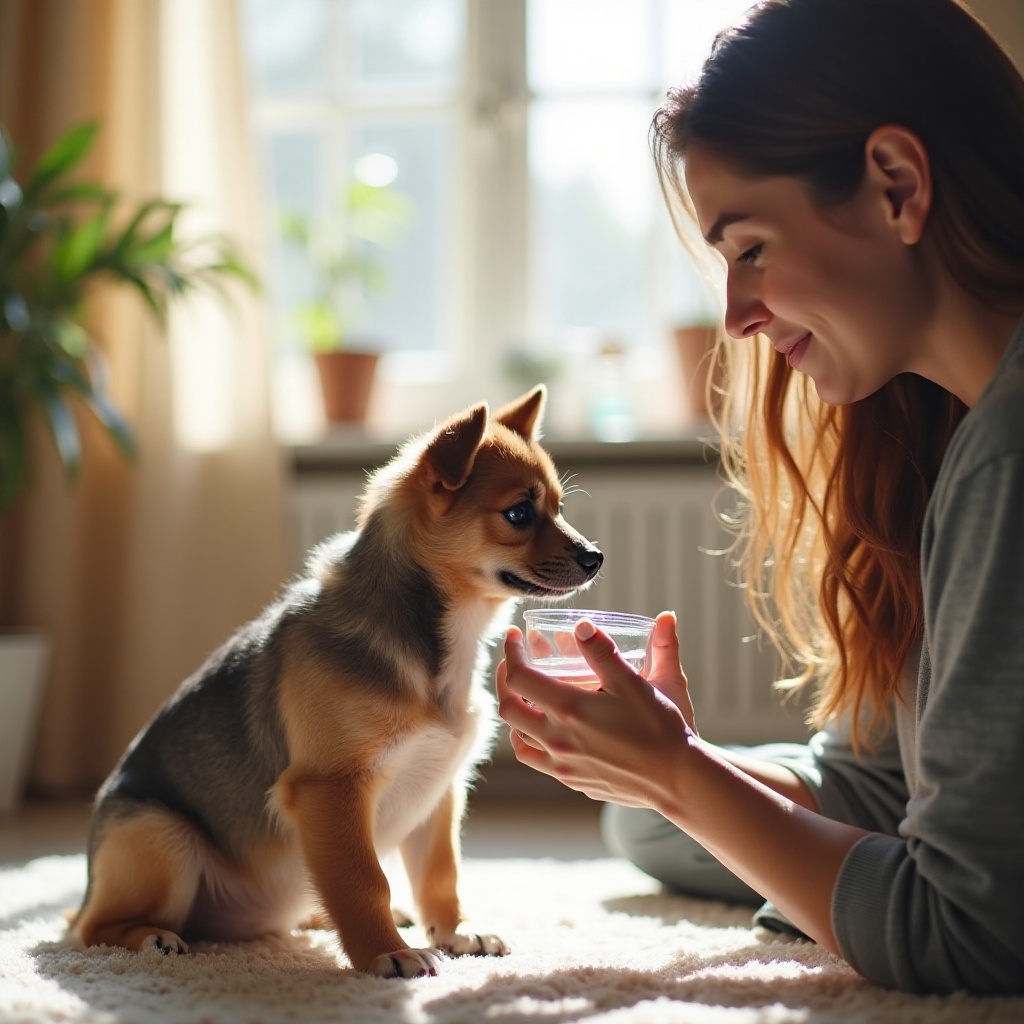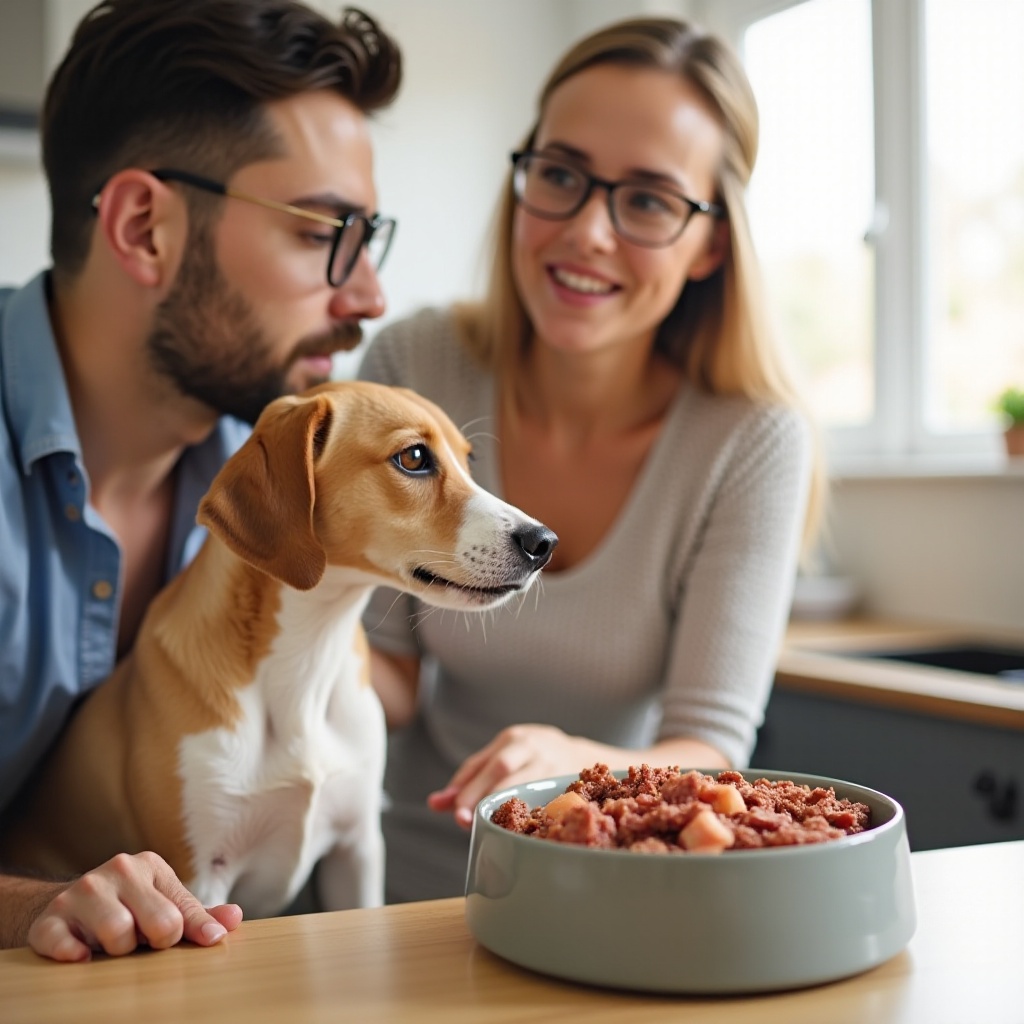Introduction
Dog diarrhea is distressing for both pets and owners. It can signal various issues, from minor digestive upset to more serious health problems. As a responsible pet owner, knowing what to feed your dog during these moments is crucial. The right diet can help soothe their stomach, provide essential nutrients, and ensure they regain their health quickly.

Understanding Dog Diarrhea
Dog diarrhea is a common issue marked by loose, watery stools. It’s not a disease but a symptom of underlying concerns. Diarrhea can be acute or chronic. Acute cases are sudden and often short-lived, while chronic diarrhea lasts for weeks or recurs frequently. Both types require attentive care to prevent dehydration and malnutrition.
Diarrhea can result from various triggers. Some cases resolve quickly with appropriate dietary measures, while others may need veterinary intervention. Understanding these variations helps in managing the situation effectively and ensuring your dog’s quick recovery.
Identifying the Causes of Diarrhea
Pinpointing the exact cause of your dog’s diarrhea can be tricky but essential for effective treatment. Common causes include:
- Dietary Indiscretion: Consuming spoiled food, garbage, or non-food items.
- Food Allergies or Intolerances: Reaction to certain ingredients, such as dairy or specific proteins.
- Infections: Bacterial, viral, or parasitic infections.
- Medications: Certain drugs can upset the digestive system.
- Stress: Changes in the environment, such as moving or boarding, can cause stress-induced diarrhea.
- Medical Conditions: Issues like inflammatory bowel disease, pancreatitis, or internal parasites.
Recognizing these causes can aid in managing your dog’s symptoms more effectively. Always consult with your vet to determine the specific cause and appropriate treatment plan.
Initial Steps: Fasting and Hydration
When your dog first shows signs of diarrhea, it’s essential to let their digestive system rest.
-
Fasting: Withhold food for 12-24 hours. This brief fasting period allows the gut to heal and reduces the chances of further irritation. Note: Puppies and small dogs should only fast for shorter periods due to their higher energy needs.
-
Hydration: Diarrhea depletes electrolytes and causes dehydration. Provide fresh water consistently. If necessary, an electrolyte solution designed for pets can help maintain hydration levels better.
After the fasting period, slowly reintroduce easy-to-digest foods to avoid overwhelming their stomach.

Recommended Foods for Dogs with Diarrhea
Choosing the right foods during this recovery phase is crucial.
The Importance of a Bland Diet
Bland diets are gentle on the stomach and provide easily digestible nutrients. They help firm up stools and allow the digestive system to recover without complications.
Boiled Chicken and Rice
Boiled chicken (skinless and boneless) paired with plain white rice is the go-to meal for dogs with diarrhea. It’s easily digestible and provides necessary calories and protein to help your dog regain strength.
Plain Canned Pumpkin
Pumpkin is great for soothing an irritated stomach. It’s high in fiber and can help solidify your dog’s stool. Ensure it’s plain pumpkin puree, with no added spices or sugars.
Mashed Potatoes
Plain, boiled potatoes (no butter, milk, or seasoning) can also aid digestion. They are easy to digest and gentle on your dog’s stomach.
Additional Suitable Foods
Other appropriate foods include:
– Plain yogurt: It introduces beneficial bacteria, aiding digestion.
– Boiled egg: Provides easy-to-digest protein.
– Cottage cheese: High in protein, low in fat.
Foods and Ingredients to Avoid
Certain foods can exacerbate diarrhea and should be strictly avoided:
- Fatty Foods: They are hard to digest and can worsen diarrhea.
- Dairy Products: Many dogs are lactose intolerant, and dairy can cause gastrointestinal upset.
- Spicy or Seasoned Foods: They can irritate the stomach lining and exacerbate symptoms.
- Artificial Sweeteners: Sugar substitutes like xylitol are toxic to dogs.
- Raw Foods: Their digestibility is reduced in a stressed digestive system.
Keeping your dog away from these foods helps manage the diarrhea more effectively and prevents further discomfort.

Integrating Dog Health Supplies
Certain health supplies can aid in your dog’s recovery.
Probiotic Supplements
Probiotics introduce beneficial bacteria that aid digestion and improve gut health. Look for pet-specific probiotics to ensure they are safe and effective.
Electrolyte Solutions
These solutions replace lost fluids and minerals. Pedialyte (unflavored) can be used in small amounts, but pet-specific electrolyte solutions are recommended.
Over-the-Counter Medications
Some medications, like Imodium, can help manage diarrhea, but always consult your vet before administering any medication.
Monitoring Progress and Reintroducing Regular Diet
Monitor your dog’s stool consistency, energy levels, and overall health. Gradually reintroduce their regular diet:
- Day 1-2: Start with small portions of the bland diet.
- Day 3-5: Gradually mix in their regular food, reducing the bland food amount.
- Day 6+: If stools are normal and your dog is energetic, fully transition back to their regular diet.
Preventive Dietary Tips and Long-Term Considerations
Preventive measures can help avoid future episodes of diarrhea:
- Introduce New Foods Gradually: Sudden changes in diet can upset the digestive system.
- Ensure a Balanced Diet: A well-balanced, high-quality dog food can maintain gut health.
- Regular Vet Check-ups: Routine check-ups can help identify underlying health issues that may cause diarrhea.
Proper diet and preventive care ensure your dog’s gut remains happy and healthy.
Conclusion
Feeding your dog the right foods during diarrhea is crucial for their recovery. Addressing hydration, introducing bland diets, and avoiding problematic foods can help manage symptoms effectively. Always consult your vet for persistent or severe cases. With careful attention, your dog can bounce back to their happy, healthy self.
Frequently Asked Questions
How long should I keep my dog on a bland diet?
Keep your dog on a bland diet for 3-5 days or until their stools are firm. Gradually reintroduce regular food to avoid digestive shocks.
Can I give my dog over-the-counter medications for diarrhea?
Consult your vet before giving any medications, as some can be harmful or inappropriate depending on the underlying cause.
When should I consult a vet about my dog’s diarrhea?
Seek veterinary advice if diarrhea persists for more than 24-48 hours, involves blood, is accompanied by vomiting, or if your dog shows signs of dehydration or extreme lethargy.
